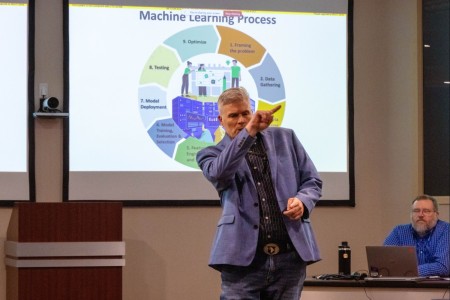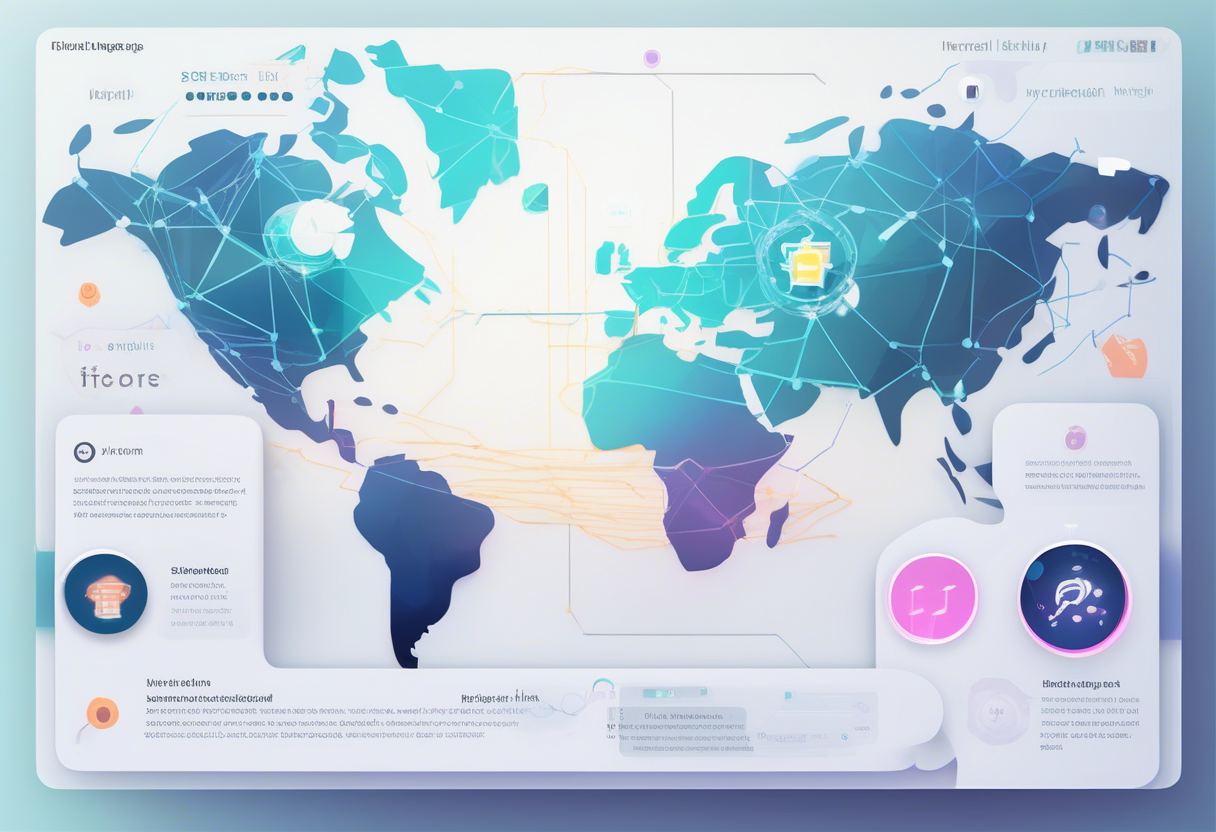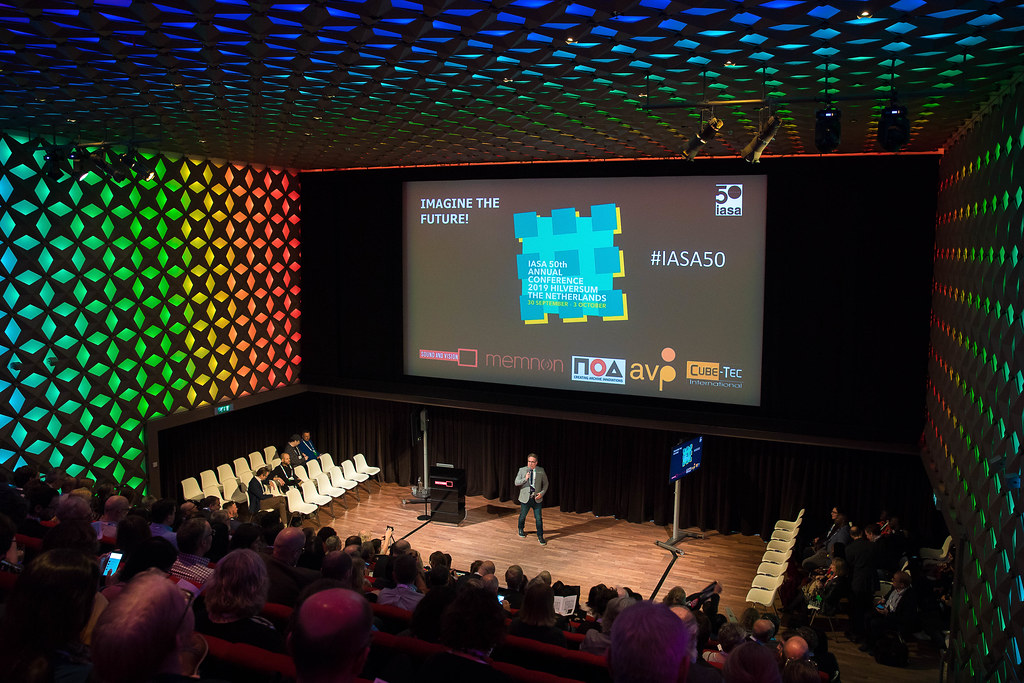
Public speaking has always been a valued skill among leaders, educators, and influencers. But here's something interesting: it's about to change in a big way. With AI making its mark in every field, giving speeches is no different. A recent study shows that 75% of public speakers think AI will significantly boost their presentation skills in the next ten years. Picture this: AI helping you write a great speech, checking how your audience reacts right then and there, and even guessing how well your talk will go. In this article, we'll look at what's happening in public speaking now, see how AI is shaking things up, and think about the ethical questions these changes bring. If you're curious about how AI is set to transform how we speak and engage with audiences, stick around. Let's explore the future of public speaking together.
Summary: This article discusses the impact of AI technologies on public speaking, exploring current applications, future developments, and ethical considerations. It highlights contributions from Deepbrain AI and provides practical use cases and FAQs.
Exploring the Future of Public Speaking
Overcoming Traditional Public Speaking Challenges
Public speaking comes with its own set of hurdles, even for seasoned pros. One significant challenge is keeping the audience engaged, especially online. Without interactive elements or content that feels personal, maintaining interest is tough.

Being genuine is key to building trust, but it's not always easy to pull off. Additionally, when addressing diverse groups, it's crucial to consider how to include different perspectives. With attention spans shrinking, making your talk concise and impactful can be tricky. This is why microlearning and bite-sized talks are gaining popularity to keep audiences interested.
Technology's Impact on the Future of Public Speaking
Technology is revolutionizing public speaking. Tools like virtual and augmented reality (VR and AR) are enhancing speeches by creating immersive experiences. Artificial intelligence (AI) helps tailor presentations to audience preferences and monitors engagement in real time.

With the rise of hybrid and virtual events, speakers must excel in both in-person and online presentations to remain relevant. Social media extends your message's reach by connecting with audiences before, during, and after your talk. Furthermore, technology facilitates audience interaction through live polls, Q&A sessions, and games.
These technological advancements are reshaping the future of public speaking, offering innovative solutions to traditional challenges and enhancing communication.
AI Technologies Transforming the Future of Public Speaking
AI-Powered Teleprompters for Enhanced Presentations
AI-powered teleprompters are revolutionizing the way we deliver speeches. These advanced systems provide real-time transcription and offer suggestions to enhance language, correct grammar, and reduce filler words during presentations. Unlike traditional teleprompters that merely display text, these intelligent systems leverage large language models (LLMs) to analyze speech and propose improved versions, elevating the quality of presentations.
Consider the Amazon Bedrock-powered virtual assistant. It transcribes and analyzes presentation audio, providing real-time feedback and suggestions for more effective speaking. These teleprompters are invaluable for both novice and experienced speakers, enabling them to deliver smooth, professional presentations without awkward pauses or hasty delivery.

AI in Speech Synthesis and Voice Modulation for Public Speaking
The integration of AI in speech synthesis and voice modulation is enhancing public speaking by making it clearer, more engaging, and better paced. These tools allow speakers to adjust their voice to suit different audiences or environments. Platforms like SayNow AI offer real-time AI feedback to refine speaking skills, including voice modulation and speech clarity. This technology helps avoid monotone delivery and filler words, ensuring speakers connect effectively with their audience.
Moreover, AI tools assist individuals with speech impairments by generating clear speech and improving communication. Advanced AI platforms provide real-time feedback on delivery, enabling speakers to modify pitch, tone, and even accent to effectively reach a global audience.
Personalized AI Coaching for Future Public Speakers
Personalized AI coaching platforms deliver feedback and training tailored to individual skills and objectives, enhancing public speaking confidence and effectiveness. These platforms analyze rehearsal videos and speech recordings to provide detailed feedback on pacing, clarity, intonation, body language, and stage presence, accelerating improvement.
For instance, Cambridge's AI-enabled VR platform combines immersive environments with AI coaching to alleviate public speaking anxiety and build resilience. Generative AI assistants can transcribe speeches, identify grammatical errors, and suggest communication improvements, aiding students, professionals, and social media personalities alike. This approach is particularly beneficial for those lacking access to traditional resources, offering a cost-effective, convenient alternative.

Looking forward, public speaking will increasingly incorporate virtual, augmented, and extended reality to create interactive experiences for both live and remote audiences. AI-driven speech analysis tools can detect subtle tones and emotions, providing insights into audience perception and allowing speakers to adjust their delivery for maximum impact. By embracing hybrid events and utilizing AI feedback, speakers can craft engaging, personalized presentations that truly resonate with their audiences. This evolution in public speaking technology ensures speakers can continually enhance their skills and deliver more compelling presentations, paving the way for the future of public speaking.
Practical Applications and Use Cases in the Future of Public Speaking
AI in Leadership Communication for Future Public Speaking
AI is revolutionizing the way leaders engage with their audiences. By enabling the creation of personalized content and providing immediate feedback, AI enhances communication effectiveness. Through AI-driven analytics, speakers can adjust their messages based on audience interest and engagement levels. This dynamic approach ensures that communication is impactful.

Consider a scenario where a CEO uses AI to customize a keynote speech for a diverse audience. They might employ live polls and real-time sentiment analysis to adapt their message in real-time. Furthermore, integrating AI with virtual and augmented reality introduces a new dimension of interactive communication. This approach captivates attention and maintains engagement through features like live polls, Q&A sessions, and interactive games.
AI for Accessibility in Global Public Speaking
AI is also pivotal in making public speaking more accessible. It offers tools for real-time translation and transcription, accommodating various communication needs and ensuring clarity across languages and abilities. Envision a global nonprofit leader delivering a virtual speech. With AI-powered translation and captions, the message becomes accessible to everyone, regardless of their location.

AI-enhanced virtual presentations, combined with VR technologies, enable leaders to connect with global audiences, effectively dissolving geographical barriers. Additionally, AI tools integrated into social media platforms allow speakers to engage with their audience before, during, and after their presentations, fostering ongoing dialogue.
By leveraging AI in public speaking, leaders can convey their messages more effectively. These tools not only enhance communication quality but also ensure that information is accessible, engaging diverse audiences. As AI continues to evolve, it is set to play a significant role in the future of public speaking, making communication more effective and inclusive on a global scale.
For further reading, explore these resources:
Future Developments and Ethical Considerations
AI Innovations Shaping the Future of Public Speaking
AI is set to revolutionize motivational speaking by making it more personal and engaging. With real-time analytics and content adjustments, speakers can connect with their audience like never before.
Imagine this scenario: AI helps tailor speeches by suggesting topics that resonate with the audience's interests. It can even provide feedback on audience engagement, allowing speakers to adapt in real-time. Picture a keynote speaker utilizing AI to analyze the crowd's interests. They could then employ live polls and Q&A sessions during a VR-enhanced speech to keep everyone involved and make the talk more personalized.

Virtual and Augmented Reality are also gaining prominence, offering immersive experiences that captivate audiences. With the rise of virtual presentations and hybrid events, speakers need to enhance their skills to engage remote audiences effectively. This involves the strategic use of multimedia and interactive platforms. Moreover, social media is becoming a vital tool for speakers to connect with their audience before, during, and after their talks, expanding their reach and sustaining the conversation.
Ethical Implications in the Future of Public Speaking
As AI and immersive technology become integral to public speaking, ethical considerations come to the forefront—particularly regarding data privacy and transparency in audience analytics. Building trust is essential.
It is vital to ensure that speeches are inclusive and diverse, representing various perspectives without bias. As technology's role grows, we must ensure accessibility for everyone, including those with disabilities or limited access to technology.
Authenticity is crucial. Speakers need to balance technology with genuine human connection to avoid appearing insincere. As professional speaking evolves towards personal branding, ethical challenges arise concerning influence and transparency. Speakers should ensure their AI-powered engagement tools respect privacy by obtaining consent for data collection and clearly explaining how the data will be used to enhance the presentation.

Deepbrain AI's Role in the Future of Public Speaking
Understanding Deepbrain AI's Video Creation Technology
DeepBrain AI is an innovative tool designed to simplify video creation. By leveraging AI avatars, text-to-speech technology, and ready-made templates, it allows users to produce professional-grade videos without the need for a camera or actors. This makes it accessible to a wide range of users.
Key features of DeepBrain AI include:
- Over 100 lifelike AI avatars that present scripts with realistic gestures and natural speech, adding a personal touch to videos.
- Support for text-to-speech in more than 80 languages, with easy translation options for both audio and text. This facilitates reaching a global audience.
- Assistance in writing, refining, translating, and enhancing scripts.
By utilizing ElevenLabs technology, DeepBrain AI ensures voiceovers sound natural and expressive across different languages. Users can create realistic avatars from short clips with voiceovers, ideal for training videos, internal messages, and public content, all without significant time or financial investment.

DeepBrain AI is highly regarded for producing high-quality videos featuring realistic avatars and voiceovers in multiple languages, making it especially popular among public speakers and content creators.
Transforming Public Speaking with Deepbrain AI
DeepBrain AI revolutionizes public speaking by enabling speakers to create realistic AI avatars that deliver speeches in various languages, thus reaching a broader audience globally. The AI script assistant plays a crucial role in enhancing scripts, ensuring they are clear and engaging before being transformed into AI-generated videos.
By automating video creation with natural voice synthesis and lifelike avatars, DeepBrain AI empowers speakers to produce high-quality content without the need for physical presence or expensive setups. Its multilingual dubbing and voice cloning capabilities make it simple to tailor messages for different regions while maintaining emotional resonance.
Supporting new avenues of global communication, DeepBrain AI combines expressive speech with visual realism, transforming the way public speaking content is shared and received. A survey conducted in 2024 revealed that 75% of speakers utilizing AI tools like DeepBrain AI experienced significant improvements in confidence and delivery quality.
Public speaking coaches employ DeepBrain AI to create practice videos with AI avatars, providing real-time feedback on pacing, tone, and body language. This enables speakers to enhance their skills without requiring technical expertise or live actors.
FAQ Section
How Will AI-Powered Teleprompters Transform Public Speaking Preparation?
AI-powered teleprompters are set to revolutionize public speaking by making it more personal and adaptable. These smart tools can tweak your speech on the fly based on audience reactions and feedback. For instance, if the crowd seems uninterested, the AI can suggest changing your words or tone to grab their attention. This ensures you can keep your audience hooked from start to finish.

Moreover, AI assists in creating presentations that are more interactive and driven by data, making your preparation time more efficient. During practice sessions, AI provides real-time tips on pacing and audience engagement, allowing you to polish your performance before the big day. This makes quality speech preparation accessible to everyone, even without a professional coach. For more insights, visit Kruger Cowne.
Ethical Concerns of AI in Public Speaking Tools
AI in public speaking tools raises several ethical questions. Privacy and data security are significant concerns since these tools often require gathering and analyzing audience data to tailor speeches. It's crucial to handle this data carefully to protect people's privacy.

Another concern is the potential over-reliance on technology, which might make speakers less genuine and connected with their audience. Over-dependence on AI could curb creativity and the human touch essential to effective communication. Additionally, there's the issue of transparency. If speakers use AI to craft substantial portions of their talks without disclosing it, it might erode trust with the audience. Balancing AI use with authenticity is important, as further discussed at Kruger Cowne.
AI's Role in Analyzing Audience Engagement During Speeches
AI significantly enhances the analysis of audience engagement during speeches by providing real-time insights. By observing facial expressions, body language, and interactions, AI can gauge reactions and suggest changes to maintain or increase interest. If engagement dips, AI might propose adding interactive elements like live polls or Q&As tailored to the audience's interests.
This capability allows speakers to adjust on the spot, making talks more dynamic and in tune with the crowd. Tools like Affectiva and RealEyes are already using AI to read facial expressions and understand audience emotions, which is invaluable for refining delivery and content. Ongoing feedback from AI helps speakers tweak their presentations, leading to more powerful public speaking. For more on this, visit Chris M Wilson.
For additional insights into the future of public speaking and the role of AI, visit VaynerSpeakers.